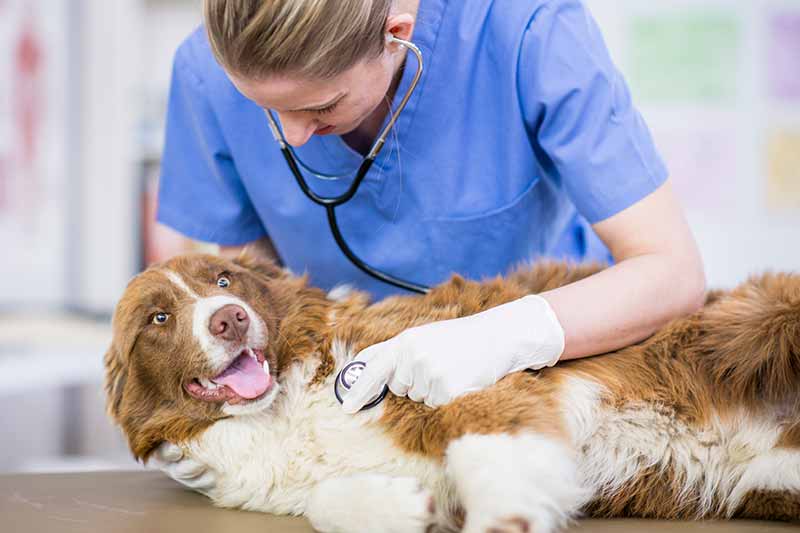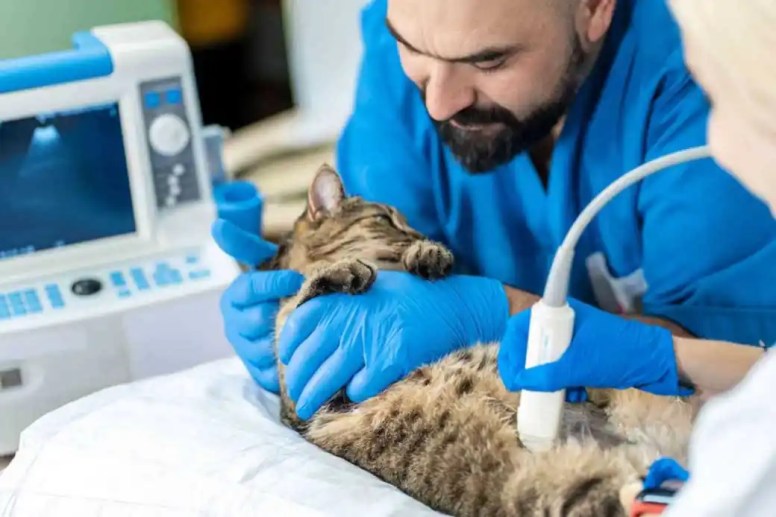Just How Pet Health Checkups Assist Discover Early Signs of Ailment and Maintain Your Pet Healthy
Just How Pet Health Checkups Assist Discover Early Signs of Ailment and Maintain Your Pet Healthy
Blog Article
Inoculation Standards From Your Trusted Veterinarian
Inoculation guidelines offered by your trusted vet play a crucial role in protecting your pet's health and well-being. Core vaccinations are fundamental for all pets, while non-core vaccinations can be tailored to ecological exposures and details lifestyles. Recognizing the nuances of inoculation timetables, which begin as very early as 6 to 8 weeks, is necessary for ideal defense. Additionally, dealing with typical mistaken beliefs surrounding vaccines can even more enhance pet dog proprietors' confidence in these safety nets. As we discover these essential elements, it becomes progressively clear why normal consultations with your veterinarian are essential for notified decision-making.

Significance of Inoculations
Inoculations play a pivotal function in protecting pet dogs against a variety of preventable diseases. By promoting the immune system to recognize and battle particular pathogens, vaccinations substantially minimize the occurrence of infectious illness that can affect a pet's wellness and longevity. Not just do inoculations secure specific animals, yet they likewise contribute to herd resistance, thus lowering the general prevalence of conditions in the pet population.
Timely inoculations help to mitigate the spread of illness such as rabies, parvovirus, and distemper, which can have severe effects for both people and pets. Vaccinations are typically a need for boarding centers, brushing services, and canine parks, making them essential for those that desire to socialize their pets.

Core Injections for Pet Dogs
While the details inoculation needs of animals can differ based upon specific variables, core injections are globally suggested to safeguard versus the most typical and significant conditions (Pet Health Checkup). Core injections are those deemed essential for all pet dogs, despite their lifestyle or geographical area, as they safeguard versus highly infectious and potentially deadly ailments
For canines, the core injections include those for canine distemper, parvovirus, adenovirus (hepatitis), and rabies. Canine distemper is a viral disease that impacts the respiratory, gastrointestinal, and nerve systems. Parvovirus is recognized for triggering serious stomach disease, specifically in puppies. Adenovirus can result in liver disease, while rabies is a zoonotic condition that positions a risk to both people and pets.
In pet cats, core injections encompass feline panleukopenia, feline calicivirus, feline herpesvirus (rhinotracheitis), and rabies. Feline panleukopenia is a highly infectious viral condition that influences the body immune system and intestines. Calicivirus and herpesvirus are significant factors to upper breathing infections in pet cats, while rabies stays a vital issue for public wellness.
Speak with your vet to ensure your pet dogs receive their core inoculations on timetable.
Non-Core Vaccines Explained
Non-core vaccinations are tailored to attend to particular threats related to a pet dog's direct exposure, lifestyle, and atmosphere to particular conditions. Unlike core injections, which are universally advised for all animals, non-core injections are considered based on specific conditions. These vaccinations are specifically essential for family pets that might come across distinct pathogens as a result of their geographical location, traveling practices, or tasks.
Examples of non-core vaccinations include those for Bordetella bronchiseptica, which is linked to kennel cough, and Lyme disease, triggered by ticks. Pets that often connect with other pets, such as those in boarding centers, pet parks, or brushing atmospheres, may gain from click here for more info Bordetella inoculation. If you live in an area where Lyme condition is prevalent, vaccinating against this illness can be a sensible option for outdoor-loving dogs.
Other non-core injections might consist of those for leptospirosis, canine influenza, and feline leukemia, relying on the particular danger aspects present. It is necessary to have a detailed conversation with your veterinarian regarding your pet dog's way of life and the prospective need for these vaccines, making certain a tailored inoculation approach that best protects your furry friend.
Inoculation Arrange Summary

As family pets develop, it is vital to adhere to the recommended booster inoculations. Vet Enterprise. For adult pets, core vaccines are normally offered every one to 3 years, relying on the particular injection and local guidelines. Non-core vaccines may be suggested based on way of living factors and regional illness occurrence, requiring a customized approach
Normal veterinary examinations are crucial for updating inoculation schedules. Your vet can give guidance on one of the most suitable booster shots for your pet dog, factoring in age, health standing, and environmental threats. By staying proactive and notified, pet owners can guarantee their fuzzy companions obtain prompt and efficient vaccinations, consequently safeguarding their health and health throughout their lives.
Common Misconceptions Regarding Injections
Misunderstandings about pet dog vaccinations can bring about confusion and hesitation among pet dog owners pertaining to the booster shot process. One widespread myth is that vaccines are unnecessary for interior family pets. While it's true that interior animals deal with lower dangers, they are not completely unsusceptible to diseases, as pathogens can be introduced via numerous ways, including human garments and various other pets.
An additional false impression is that vaccinations can cause the diseases they intend to avoid. In fact, the majority of vaccinations have inactivated or undermined pathogens, which can not create condition in healthy pets. Some animal owners also believe that their family pets ought to not be vaccinated if they are currently healthy; nonetheless, inoculations are a positive step that discover this helps prevent the onset of ailment.
In addition, many pet owners are afraid that vaccinations will certainly lead to long-lasting health problems. The advantages of inoculation-- safeguarding family pets from potentially life-threatening conditions-- far exceed the dangers.
Verdict
In recap, adherence to vaccination guidelines is important for making sure the health and wellness and long life of pets. Core vaccines supply vital security versus severe illness, while non-core vaccinations address details dangers based on specific lifestyles. Developing a detailed vaccination timetable, together with routine veterinary examinations, assists in optimum health and wellness monitoring. Dispelling usual misconceptions surrounding vaccinations better strengthens the significance of informed decision-making in animal treatment. Eventually, a positive technique to vaccinations is important for maintaining animal well-being.
Not just do inoculations secure individual animals, yet they additionally add to herd immunity, therefore minimizing the general occurrence of conditions in the family pet population.
Misconceptions concerning pet dog inoculations can lead to complication and hesitation amongst animal proprietors relating to the booster shot process. While it's true that interior pet dogs encounter lower risks, they are not entirely immune to conditions, as virus can be presented through different means, consisting of human clothes and various other animals.
Some pet owners additionally believe that their pet dogs ought to not be vaccinated if they are currently healthy; however, vaccinations are a proactive measure that helps stop the beginning of disease.
The benefits of vaccination-- securing animals from possibly life-threatening conditions-- much outweigh the risks.
Report this page